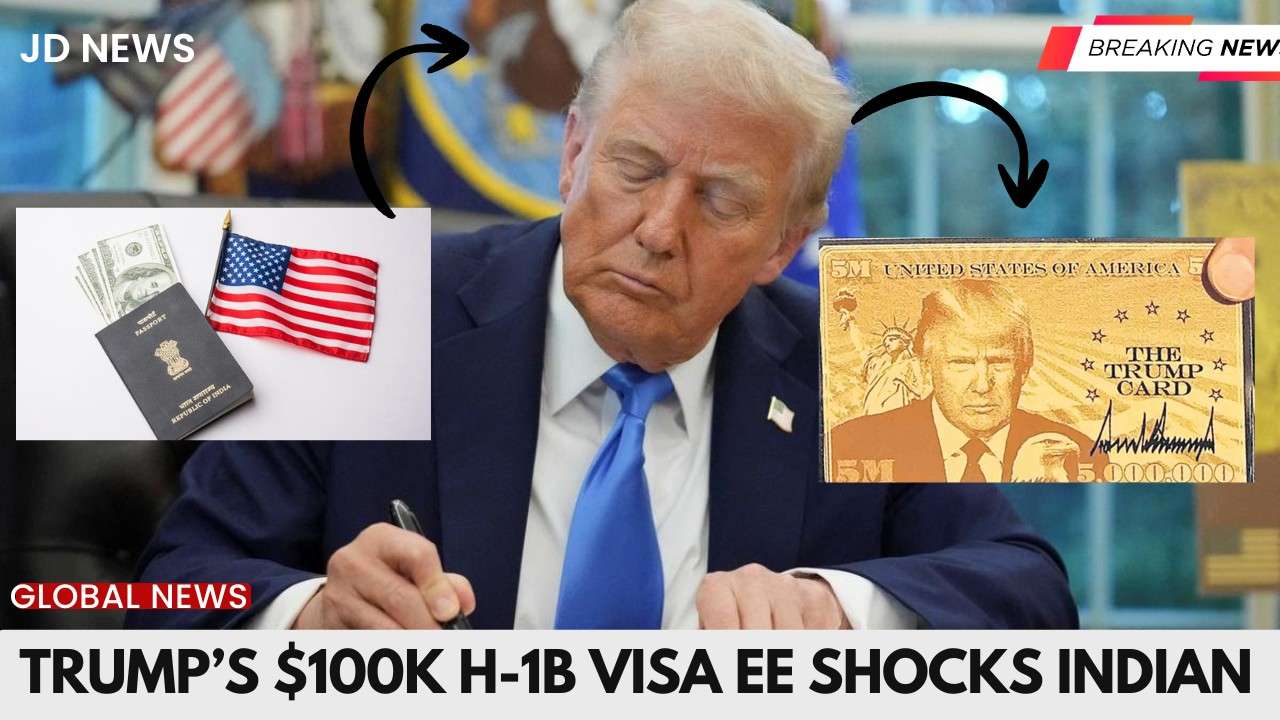Trump Imposes $100,000 Fee on H-1B Visa Applications: What It Means for Indians & Tech Workers

On Friday (September 19, 2025), President Donald Trump signed a proclamation imposing a startling $100,000 yearly cost on H-1B visa applications, potentially reshaping the future of Indian professionals in the United States. The decision, portrayed as a measure to protect American workers, has sent shockwaves across the global technology industry, particularly in India, which accounts for the vast majority of H-1B visa holders.
The Trump administration justified the move as an attempt to ensure that only "highly skilled" and "extraordinary" individuals enter the US workforce. White House staff secretary Will Scharf called the H-1B program as one of the "most abused" visa categories, with the initial goal of allowing firms to hire qualified workers in areas where Americans were underrepresented. The new price, he continued, is intended to discourage misuse of the visa and ensure that applicants genuinely contribute exceptional value to the US economy.
During the signing ceremony in the Oval Office, President Trump underlined that the United States still needs foreign workers, but only the "best and most valuable" ones. "We need workers. We need excellent workers. And this insures that it will happen," he continued. Commerce Secretary Howard Lutnick supported the proposal, saying statistics showing that employment-based immigration historically brought in 2,81,000 people each year, with many earning an average of $66,000 and being more likely to rely on government aid. According to him, the new tax will force businesses to either keep just the most valuable personnel or hire Americans instead.
The ramifications for Indian professionals are substantial. India has historically been the leading supplier of H-1B applications, with thousands of engineers, IT specialists, and healthcare professionals migrating to the United States each year. For many, the H-1B visa is the principal means of obtaining long-term employment and potential residency in the United States. The sharp increase in application fees would impose tremendous financial strain on businesses, particularly small and medium-sized software organizations that rely significantly on Indian expertise. While larger organizations like Google, Microsoft, and Amazon may bear the additional costs, startups and outsourced firms are likely to reconsider their employment tactics.
Critics claim that this approach will hinder diversity in the US workforce and reduce its global competitiveness. By making it prohibitively expensive to hire qualified foreign workers, the United States risks losing top talent to Canada, the United Kingdom, and Australia, all of which actively welcome immigrants in important industries. Supporters, on the other hand, feel that this policy will finally push American businesses to prioritize domestic workers and reduce what they perceive to be an overreliance on foreign labor.
For Indian tech professionals, the announcement is both financially and emotionally devastating. Families who are already dealing with significant immigration backlogs and uncertainty about Green Cards will now confront yet another barrier. While the Trump administration claims that the change will help America in the long term, it has undoubtedly caused concern among thousands of Indian aspirants who consider the United States as the ultimate destination for professional development.
As the new law takes effect, the world's attention will shift to how the IT sector responds. The United States may succeed in guaranteeing that only the most exceptional talent advances, but it risks alienating the very labor that has propelled Silicon Valley for decades.
📌Disclaimer: The information provided in this blog is for general news and informational purposes only. While efforts have been made to ensure accuracy, readers are advised to refer to official sources and verified announcements for the latest updates.